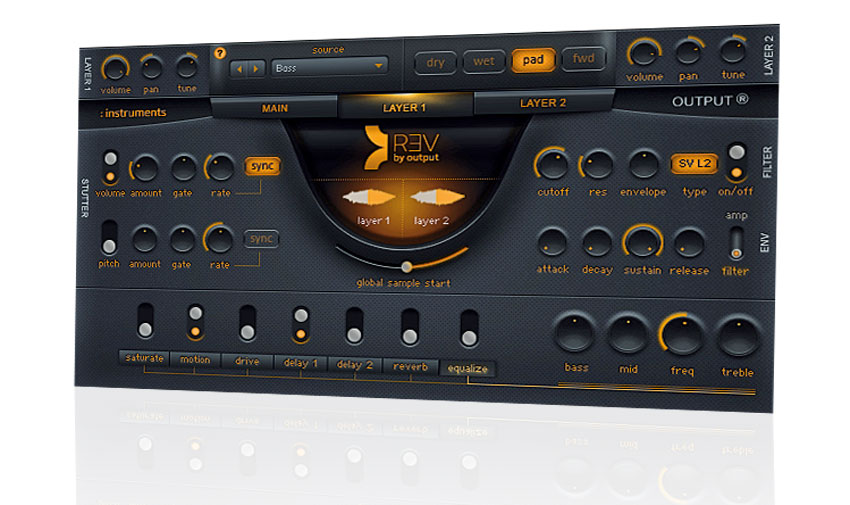MusicRadar Verdict
How much use you'll find for REV will depend on your style, but it's particularly good at effects, pads, ambiences, risers and esoteric instrumentation. We like it a lot.
Pros
- +
Well produced. Lots to experiment with. Sizeable library.
Cons
- -
Not much.
MusicRadar's got your back
Output's Kontakt/Player library, REV, is based on a library of reversed sounds and comprising four instrument "engines" - each one powering a sizeable collection of categorised presets.
Instruments are keyboard-playable multisampled patches; Timed Instruments are timestretched instruments; Loops are banks of tempo-synced, pitchable loops; and Rises are various types of timed build and riser.
"REV is beautifully produced and endlessly explorable"
Each engine has its own interface (they share many common controls). Instruments and Timed Instruments are dual-layered, with four versions of each sample (reverbed, dry, looped and forwards), enabling you to mix and match.
The engines aren't dazzlingly innovative, but Output has used many of Kontakt's best scripting features, like triggerable effects and timestretching, to great effect. The main thing is that it's a 6.8GB sample library that's beautifully produced and endlessly explorable.
Want all the hottest music and gear news, reviews, deals, features and more, direct to your inbox? Sign up here.
Computer Music magazine is the world’s best selling publication dedicated solely to making great music with your Mac or PC computer. Each issue it brings its lucky readers the best in cutting-edge tutorials, need-to-know, expert software reviews and even all the tools you actually need to make great music today, courtesy of our legendary CM Plugin Suite.

